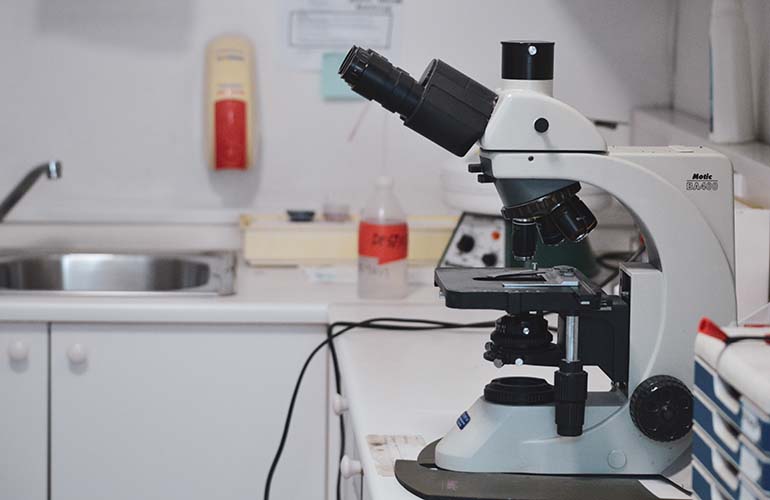Various laboratory tests are required for a definitive diagnosis and sound assessment of the patient’s medical condition.
The clinic conducts the following lab tests:
The laser flow analyzer does a complete blood count (red and white blood cells, reticulocytes (RBCs) and platelets) and conducts a blood differential test, which means it enumerates different types of white blood cells (lymphocytes, neutrophils, eosinophils, basophils and monocytes).
The biochemical blood test is used to evaluate the concentrations of urea, creatinine, glucose, liver enzymes (ALT, ALKP, GGT, AST), total bilirubin, albumin, globulin, total protein, amylase, lipase, calcium, phosphorus, magnesium, cholesterol, triglycerides and electrolytes (Na, K, Cl).
The urianalysis includes the sensory analysis (odor, color, transparency), urine specific gravity tests (using a rectometer), orientational chemical tests using test strips (urine pH value, red blood cells, white blood cells, protein, glucose, ketone, bilirubin, hemoprotein), and urine sediment tests (certifugalized for 10 minutes at 2000 revolutions per minute) under a microscope (native, methylene blue, Diff Quick and colored to Gram). The urine sediment is examined for evidence of cells, microorganisms, casts and crystals.
Various bodily fluids, aspirates and impressions are stained using Diff-Quik and examined under the microscope. Our specialists examine blood smears, bodily fluid aspirates, aspirates and impressions of tumors, tissue, skin changes, ear canal and mucous swabs, reticulocyte counts, etc. Vaginal swabs are collected to determine the menstrual cycle and various medical conditions of the patient’s reproductive system.
For other tests, samples are sent to specialized laboratories. InVitro Vienna, Laboklin Linz, Adria Lab, Faculty of Veterinary Medicine, Faculty of Medicine:

